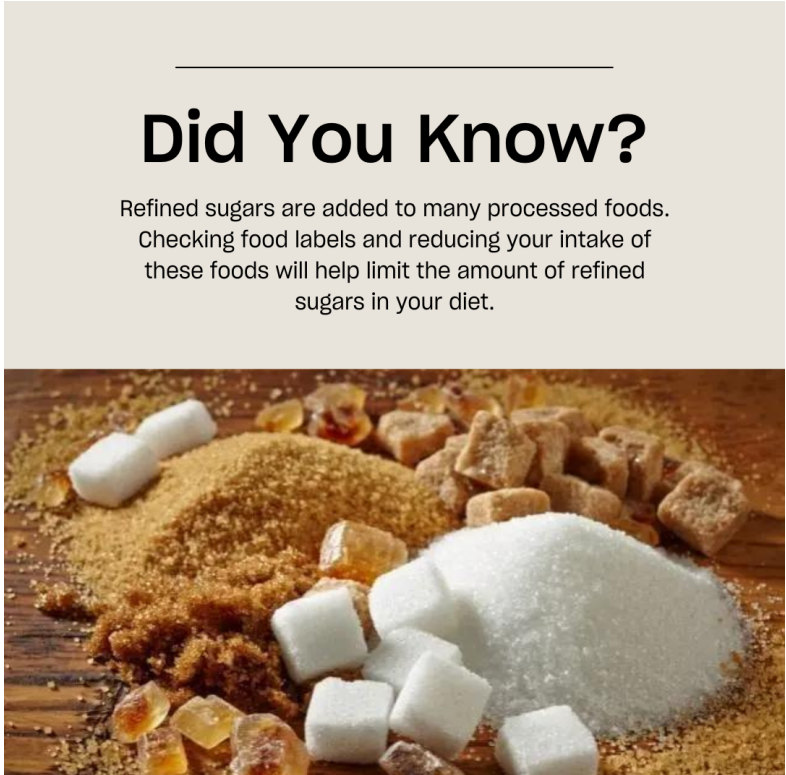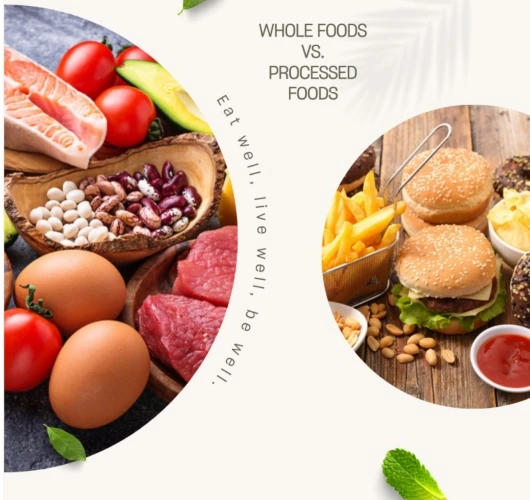The Not-So-Sweet Truth: Effects of Refined Sugars on Health
In today's fast-paced world, we've all heard the same advice: "Cut back on sugar." But
have you ever wondered why this cautionary message keeps popping up? The answer
lies in the hidden dangers of refined sugars, those sneaky sweeteners that can wreak
havoc on our health. In this article, we'll delve into the unsettling truth about refined
sugars, their impact on our well-being, and why it's essential to be mindful of our sugar
intake.
Refined Sugars vs. Natural Sugars
Before we dive into the consequences, let's distinguish between refined sugars and
their natural counterparts.
Refined Sugars: These are sugars that have undergone extensive processing, often
starting from sugar cane or sugar beets. During refining, they are stripped of beneficial
nutrients and fiber, leaving behind pure sugar. The result? A sweetener that's pure
energy but devoid of any nutritional value.
Natural Sugars: On the other hand, natural sugars occur naturally in foods like fruits,
vegetables and dairy products. They come bundled with fiber, vitamins, minerals and
antioxidants, offering a host of health benefits alongside their sweet taste.
Blood Glucose Rollercoaster
One of the primary reasons to be wary of refined sugars is their rapid impact on blood
glucose levels. When we consume refined sugars, they swiftly enter our bloodstream,
causing a spike in blood sugar. This spike is followed by a crash, leaving us feeling tired
and craving even more sugar.
This sugar rollercoaster not only affects our daily energy levels but also has long-term
repercussions on our health.
The Long-Term Consequences
Here are some of the notable long-term effects of excessive refined sugar consumption:
1. Obesity: The excess calories from refined sugars can contribute to weight gain and
obesity. High sugar intake has been linked to an increased risk of developing obesity,
which is a significant risk factor for various health issues.
2. Heart Disease: Diets high in refined sugars are associated with an elevated risk of
heart disease. Excessive sugar intake can lead to inflammation, high blood pressure,
and unfavorable changes in blood lipids, all of which contribute to cardiovascular
problems.
3. Type 2 Diabetes: Refined sugars play a pivotal role in the development of type 2
diabetes. The frequent spikes in blood sugar that result from consuming these sugars
can lead to insulin resistance, a hallmark of this chronic condition.
4. Nutrient Depletion: Refined sugars not only provide empty calories but also deplete
the body of essential nutrients, as they lack the vitamins, minerals, and fiber found in
natural sugars. This can lead to nutritional deficiencies over time.
Mindful Sugar Consumption
So, what can we do to protect our health in a world filled with sweet temptations?
1. Read Labels: Be vigilant about checking food labels for hidden sugars. Refined
sugars can be lurking under various names like sucrose, high fructose corn syrup, and
more.
2. Choose Whole Foods: Opt for whole foods over processed ones. Natural sugars
found in fruits, vegetables, and dairy products come packaged with the nutrients your
body needs.
3. Moderate Your Intake: While the occasional treat is perfectly fine, it's essential to
limit your consumption of foods and beverages high in refined sugars.
In conclusion, the not-so-sweet truth about refined sugars is clear: they may satisfy our
taste buds momentarily, but they can harm our health in the long run. By making
conscious choices to reduce our intake of refined sugars and opting for whole, nutritious
foods, we can take a significant step towards safeguarding our well-being. So, the next
time you reach for that sugary snack, think twice about the impact it may have on your
health and consider choosing a healthier alternative. Your body will thank you for it.








